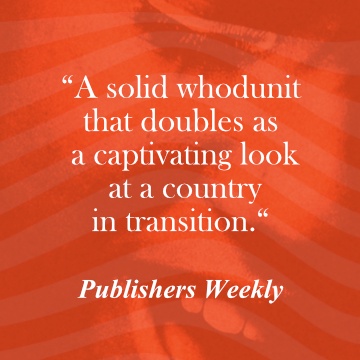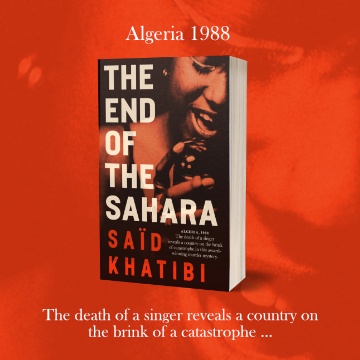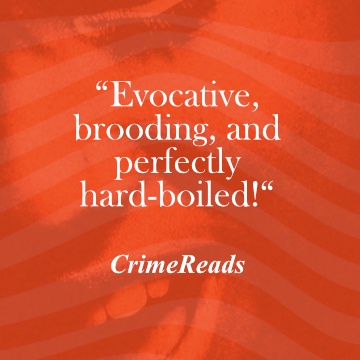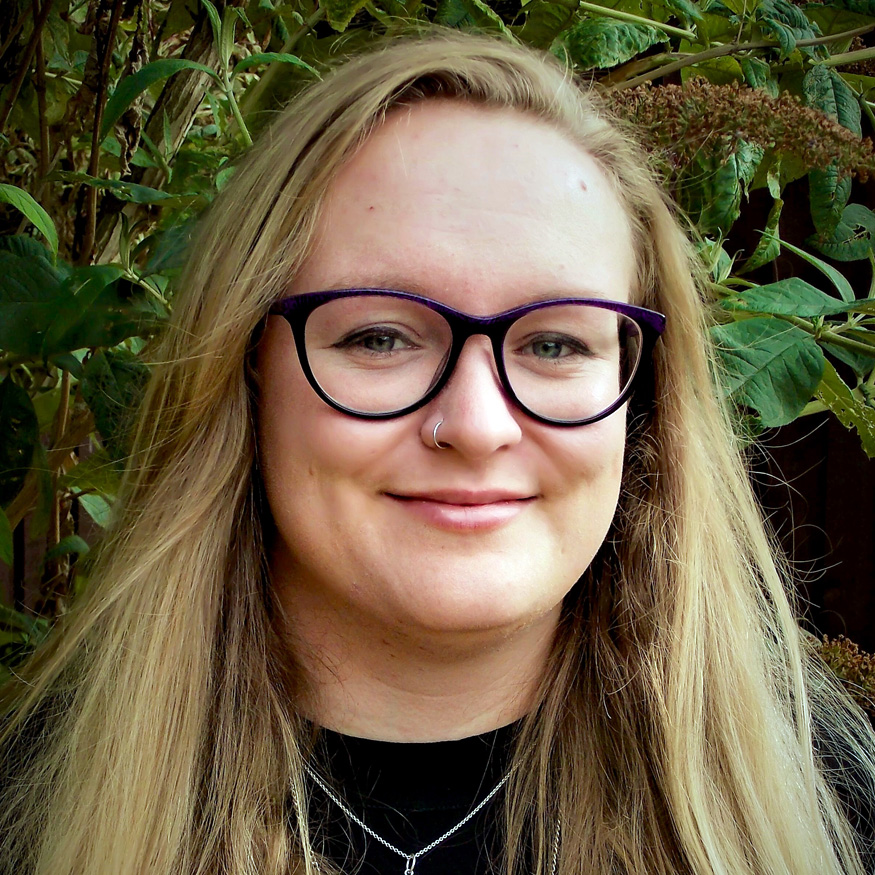
The clamour for diversity in fiction has never been greater, and Fran Dorricott’s debut, After the Eclipse, promises a welcome and sympathetic portrayal of queer characters embedded in a crime story set in small town Derbyshire. The novel, which examines the abduction of two young girls following solar eclipses, has benefitted from a growing buzz all winter. Now that the book has been published, we decided to catch up with the author…
What are crime fiction lovers going to love about After the Eclipse?
After the Eclipse is my first published novel, a psychological thriller with a superstitious centre. It’s about two sisters whose lives change forever during a solar eclipse when Olive wanders away from a crowd while big sister Cassie is meant to be watching her.
The story picks up 16 years later when, during the run-up to the next big solar eclipse, another little girl goes missing in the same small English town and the case bears similarities to Olive’s. Cassie, now a journalist between jobs, believes that whoever took Olive is still out there, and she has to act before it’s too late. It’s a story about loss and grief as much as a whodunnit.
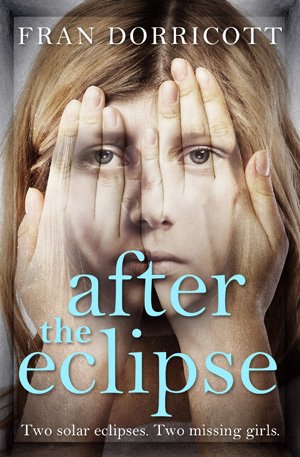
What drew you to your characters and led you to write their story?
I’ve always loved reading books centred around characters who are both strong and flawed, and perhaps even strong because of their flaws. I wanted to write about sisters who are like chalk and cheese – as so many siblings are. You could say it’s homage to my own sister!
In After the Eclipse one sister is smart but soft, and one is all sharp edges but with a big heart. I wanted to create a character in Olive who wasn’t defined by her status as a victim because she is so much more than that: she is a child who enjoys space and dinosaurs and animals, she is a whole person, not just a victim.
With Cassie I knew that I needed to showcase how loss and guilt can change a person. Cassie is dogged, brave, but often foolish. I’ve always loved characters who aren’t perfect, those who get called the classic unlikeable female protagonist. Cassie makes mistakes which might make her unlikeable to some, but she is hopefully more human because of them. After the Eclipse features at least two prominent queer characters.
How important is diversity in crime fiction?
When I was growing up, I hardly ever saw queer characters in fiction – and if I did, invariably the story was about their queerness. As a consequence – and I genuinely believe these two are connected – it took me a long time to come to terms with my own sexuality. As I got older, and as queer characters in fiction became more mainstream, I found myself drawn to reading about them. I devoured all of the books by Sarah Waters, by Jennette Winterson, I loved Patricia Highsmith’s The Price of Salt and Emily Danforth’s The Miseducation of Cameron Post. I was, honestly, comforted by the images of myself I saw within.
I think the importance of books with solid, diverse queer representation cannot be underestimated for those like me who needed a little help to feel comfortable with themselves. In terms of tips for making fiction more representative, perhaps the biggest piece of advice I can give is to read as much as possible. Read books by queer authors, by a diverse list of queer authors, as many of them as you can. Ask polite questions, but most importantly listen to what queer authors have to say. No experience is universal but a little bit of empathy goes a long way towards producing realistic, diverse fiction.
Where can readers find more diverse crime fiction?
Fingersmith by Sarah Waters isn’t a crime novel in the classic sense, but it does centre around a mystery as well as feature a whole host of undesirable misfits at its core. It’s a historical novel about a petty thief who is hired to con the niece of a wealthy man out of her inheritance – only things are complicated when Sue realises that she’s become fond of Maud in an unexpected way. Sarah Waters is the queen of queer historical fiction and this book blew my mind.
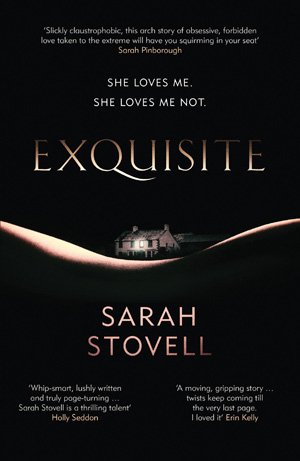
Sarah Stovell’s Exquisite is a psychological thriller about two women, both writers at different stages of their career, who develop a complex, dangerous relationship. I love that this book isn’t about queerness, but the relationship that grows between Bo and Alice borders on obsession. I also love that their relationship isn’t ‘illicit’ because of their sexual preferences but because of Bo’s standing in the writing community and Alice’s hunger to improve. It’s a twisty novel with a classic premise, just the added bonus of diverse representation.
If you love police procedurals with queer representation then Mari Hannah is the author for you. Her detective Kate Daniels is a lesbian, and her first case in The Murder Wall ties into her own past, making it personal. It’s a breath of fresh air to read a book with casually queer characters! There are also more queer books coming out in 2019 than I think I’ve ever seen before and I’m stoked to get my hands on them.
You are taking part in Author Mentor Match this year. How did you get involved, and what does it entail?
I received so much support while I was writing my debut novel that I wanted to give something back. I came across Author Mentor Match on Twitter and thought it sounded like an excellent way to do just that. It’s basically a mentor program that pairs up authors who are agented or further along their publication journey with newer young adult and middle grade authors who are just getting started. It’s a fantastic opportunity to find friends in the writing community, as well as learning more about the publishing industry from those who have been through it. New writers get direct contact with a mentor who loves their book and has a clear vision for any revisions, and then they work together to polish the manuscript so that it is ready to query agents.
After the Eclipse is your debut. How was your journey to publication, and what have you learnt along the way?
It sounds like a cliché to say it but I’ve been writing for as long as I can remember. I’d written countless novels before I wrote After the Eclipse – probably as many as 20 full-length, finished drafts – but in the end I met my agent through a creative writing MA. She was wonderful, taking me on despite the fact that I didn’t have a full-length finished current draft. We did a lot of revisions to make Olive and Cassie’s stories as strong as they could be and then were on submission for a relatively short amount of time before the lovely folks at Titan picked it up.
Of all the things I’ve learned during my publishing journey, perhaps the one I think about most is how important it is to have both persistence and patience. It’s a long road to publication but it’s worth taking the time to make the best book you can so you can have something you’re very proud of at the end – and I’m very proud of After the Eclipse.
What’s next for Fran Dorricott?
I’m currently working on my next psychological thriller. It’s another book about siblings and being haunted by the past, but it’s darker and bloodier. All I can say at the moment is that it’s a book about siblings stolen from their beds in the dead of night, a woman desperate to find the truth, and the only survivor of a serial abductor. I can’t wait for the world to meet Harriet and Erin.









